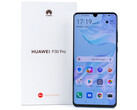At a time when Xiaomi and Samsung are touting 64MP and 108MP camera sensors as the tech to beat, an industry source familiar with Apple's strategic plans went on record with a bold claim: Cupertino is leveraging advances in quantum computing to create a camera sensor that can pick up unlimited detail.
So goes a satirical WCCFTech report on Apple’s future iPhone camera plans. While we are fairly certain that Tim Apple isn’t working on quantum entanglement smartphone camera, quantum computing as a field does have the potential to revolutionize mobile computing, albeit in the future. And, as strange as it might sound, quantum mechanical effects have already been used to capture images.
While quantum computing is still at a nascent stage, important advances have been made recently: In October, Google claimed to have achieved quantum supremacy: with its quantum computer beating conventional systems in a real-world workload for the first time.
More recently, researchers claimed to have teleported data between two chips instantaneously, relying on quantum entanglement. But what are real-world use cases for quantum computing on mobile? If quantum supremacy is achieved in a range of real-world workloads, we expect quantum computing to first have an impact on mobile through thin-client solutions.
AI is a likely area of development. While current manufacturers (including Apple) are investing a significant amount of SoC die area on NPUs (neural processing units), thin-client solutions that connect mobile devices to advanced, quantum-computing-based AI systems isn’t impossible to conceive of.
While a CSI-like enhance filter would be an interesting differentiator, we expect the real impact of quantum computing on mobile devices-including iPhones-to be gradual and not paradigm-shifting.












